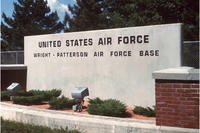The Pentagon on Friday identified the three U.S. Special Forces soldiers killed in an ambush while on a joint patrol with local forces in the north-central African state of Niger.
Staff Sgts. Bryan C. Black, Jeremiah W. Johnson and Dustin M. Wright were all assigned to the 3rd Special Forces Group (Airborne), out of Fort Bragg, North Carolina, and were part of a joint U.S. and Nigerien train, advise and assist mission, according to an Oct. 6 Defense Department press release.
"They died Oct. 4 in southwest Niger, as a result of hostile fire while on a reconnaissance patrol," the release states.
Two other U.S. troops were wounded in the attack, but the DoD has not identified them. They were listed in stable condition Thursday and were flown for treatment to a military hospital at Landstuhl Regional Medical Center in Germany, U.S. Africa Command said.
Related content:
- 3 US Troops Killed, 2 Wounded in Niger Ambush: AfriCom
- US Troops Ambushed in Niger, Pentagon Confirms
- US Military Kills 17 ISIS Militants in Libya Airstrikes
A fourth service member from a "partner nation" also was killed in the ambush near the Mali border about 120 miles north of Niamey, Niger's capital, AfriCom officials said.
AfriCom has not identified the attackers, but the al-Qaida offshoot known as Al Qaida in the Islamic Maghreb (AQIM) operates in neighboring Mali and has conducted cross-border raids into Niger.
Black, 35, was from Puyallup, Washington; Johnson, 39, was from Springboro, Ohio; and Wright, 29, was from Lyons, Georgia.
They were the first U.S. combat casualties since U.S. forces entered Niger in 2013. In February, a member of the 3rd Special Forces Group was killed in a vehicle accident in Niger, the Pentagon said.
In neighboring Mali, about 1,600 French troops with U.S. support have been assisting local forces in battling AQIM and tribal Tuareg rebels. AQIM has conducted cross-border raids into Niger to expand its footprint in the region.
In 2013, then-President Barack Obama notified Congress that about 100 U.S. troops were being deployed to Niger. They set up a drone base near Niamey to assist the French with surveillance and intelligence, and also began serving in a train, advise and assist role with Nigerien forces.
The U.S. had already been providing the French with aerial refueling for its Mirage and Rafale warplanes.
In June, as required by law, President Donald Trump notified Congress that about 645 U.S. military personnel were in Niger.
In May, Marine Gen. Thomas Waldhauser, the AfriCom commander, said at a Pentagon briefing that he had asked for more "flexibility" that would "allow us to process targets in a more rapid fashion" without going to the top of the chain of command for approval.
Waldhauser's request was approved by Defense Secretary Jim Mattis and authorized by Trump. Similar authority has been given to U.S. commanders in Syria, Iraq and Afghanistan.
At the time, Waldhauser also confirmed that the U.S. had a small Special Forces contingent in Libya, bordering Niger to the north, to call in airstrikes in support of U.S.-backed Libyan forces battling an offshoot of the Islamic State of Iraq and Syria.
-- Matthew Cox can be reached at matthew.cox@military.com.
-- Military.com's Richard Sisk contributed to this story.





























